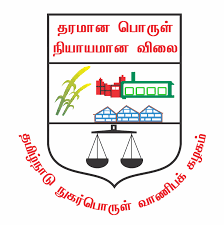A media campaign, sometimes called an online PR campaign, is a coordinated set of planned activities aimed at accomplishing a particular target in a specified period of time, using measurable results. It may be confined to a particular network, or span across multiple social media channels. However, whatever its size and scope, the results of such efforts remain in the eye of the beholder. As such, it is important for marketers and advertisers to carefully plan their media strategies, knowing that social media strategies will yield tangible results, and which will not.
The success of a social media campaign hinges on the core ingredient of the campaign: the engagement level of the audience. Engagement refers to the level of consumer or subscriber attention required for the campaign to be successful. In simple terms, people must like what they are seeing or reading about your brand or know enough about it to want to be associated with it. This requires thorough research and a well-crafted message. It also requires that the brand delivers the message precisely, and with emphasis.
Media campaigns, in all their forms, share some commonalities. They generally start with a strategic objective in mind. For instance, in an insurance marketing campaign, a lender may wish to promote a brand by reaching out to potential buyers who have never carried a policy. However, each media campaign has to be tailored to the targeted audience, as well as the particular product or service being promoted. Hence, the first step in any such campaign involves defining the customer profile or buyer persona, as defined by media specialists.
Social media marketing campaigns use multiple channels to reach out to the audience, and it is crucial for brands to understand the potential benefits of these avenues. For example, some studies indicate that most consumers access news and blog sites on a daily basis, where they get a chance to form an opinion and interact with other users. Such interaction can lead to valuable insights, which in turn can influence the purchase decision. Hence, experts advise businesses to take a detailed look at the way in which social media outlets are used, as well as the overall impact on their brand, before embarking on a campaign.
However, social campaigns also require some unique elements to make them effective. As social media marketing campaigns tend to draw on a wide range of audiences, brands need to select the platforms best suited to the target audience. This is because the wrong advertisement can have an even negative impact, whereas a well-tailored campaign can attract more customers. Another important factor is the way in which the brand defines the final goal. For instance, some companies might think that a well-planned video clip would boost sales, while others might want to make a direct call to the prospective buyer.
A social media marketing campaign can also be planned around the way in which people interact with the product. Ideally, such campaigns should offer a way for the target audience to engage with the brand. Experts recommend that campaigns must provide something of value to the audience. Ideally, such content should offer something new or unique. Moreover, the message must remain consistent. Whether a brand is making a TV ad or creating a blog post, the ultimate aim should be to connect with consumers on a deeper level.




एक टिप्पणी भेजें
0 टिप्पणियाँ